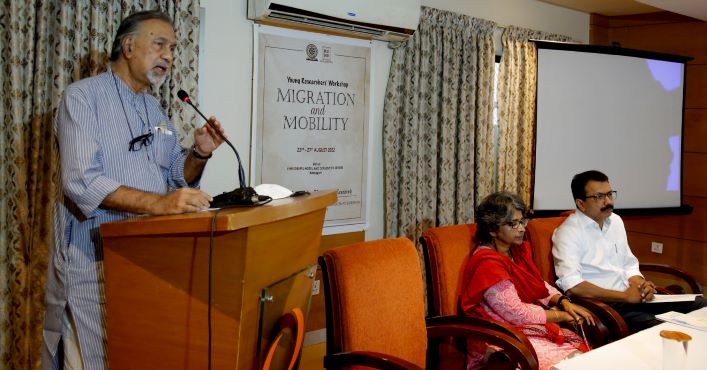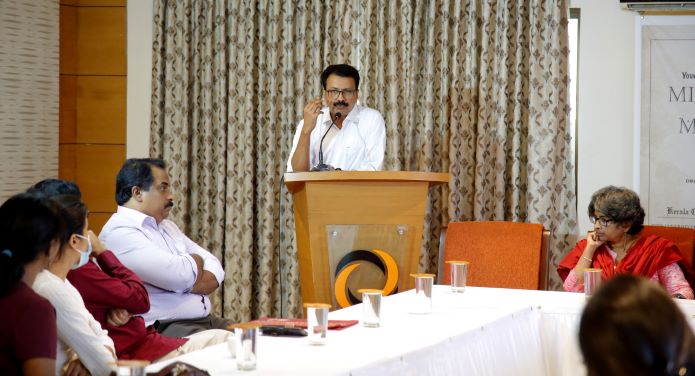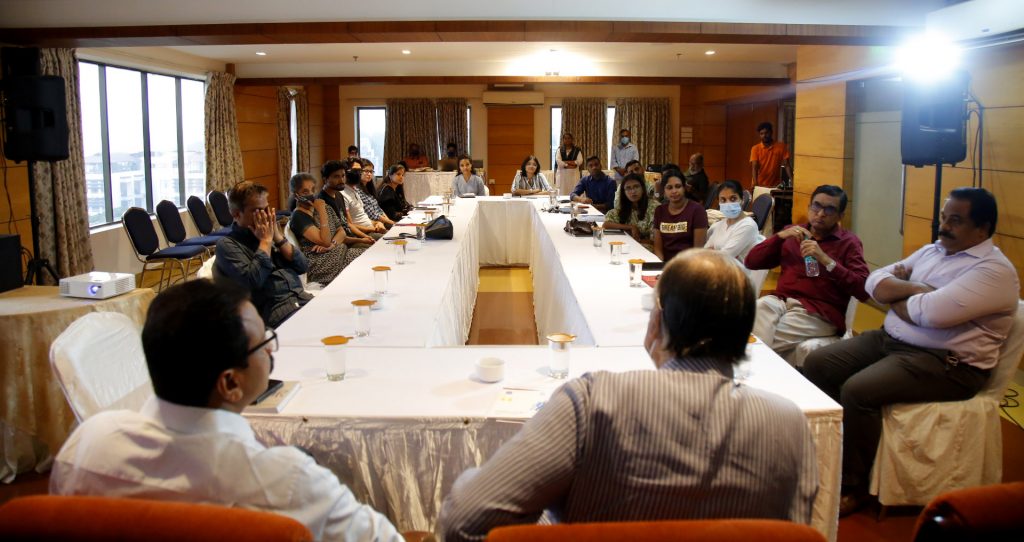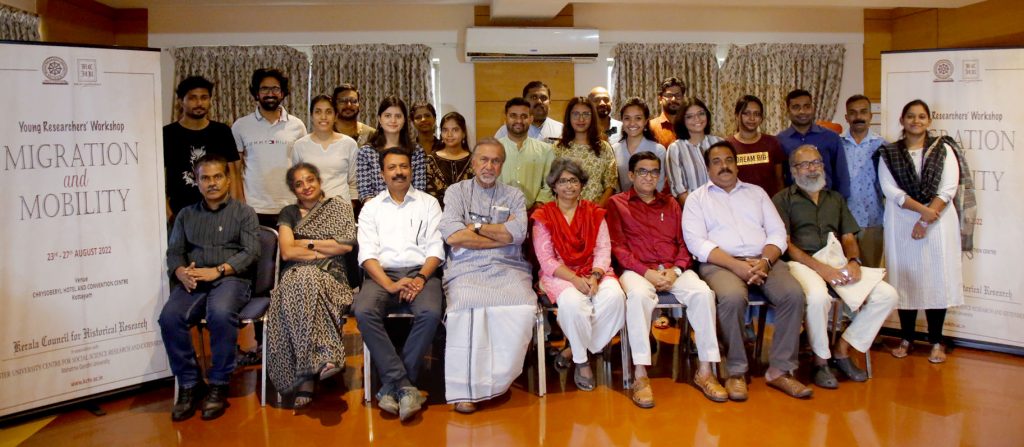
“Migration studies have a significant role in the making of modern Kerala and the articulation of issues associated with it,” according to Prof. Michael Tharakan, Chairman, Kerala Council for Historical Research (KCHR). He was delivering an inaugural note at the five-day Young Scholars’ workshop on “Migration and Mobility” organized by the KCHR in association with the Inter University Centre for Social Science Research and Extension (IUCSSRE), Mahatma Gandhi University. Reminiscing a workshop conducted at the Calicut University decades ago, organized by the dept of history headed by MGS Narayan with the participation of prominent historians such as Prof Romila Thapar, Prof R.S. Sharma, Prof Satish Chandra, and others, he said that it had played a major role in the making him as a historian. Intellectual insights generated at such workshops would be recuperative and long-lasting, Tharakan added.
In his introductory note, the workshop coordinator and the KCHR scholar-in-residence Prof V. J Varghese noted that migration studies is getting transformed into mobility studies today which offer a space for closely understating “the dynamic relationship between the combined movement and circulation of bodies, objects, as well as ideas.” Such an approach broadens the scope of migration studies to focus on movement in its multiplicity of meanings, strategies and ideologies, as well as locations of immobility. While spatial mobility in migration is a pre-given, other mobilities in terms of caste, class, gender, identities, etc. are a possibility implicated in movement. Going beyond quantifying migration and its impacts, the paradigm of mobility foregrounds diverse regimes of aspirations, strategies of gaining mobility, structures that constrict mobility and everydayness and precarities of migrant lives across historical and geographical scales, as much as reproduction of dominance and authority, Varghese noted.
Earlier, delivering KCHR-IUCSSRE public lecture on “Moralities of Land ‘Reclamation’: Church, Agrarian Expansion and Migration to Malabar” Prof V. J Varghese said that religion plays a major role in the making of perspectives on development as well as modern social transformation. He sought to bring out “the seeming anachronism of deploying spiritual renderings in the service of the material gain and attaching sacrality to modern secular-material transformations.” Prof Varghese explained, “how religious and theological dispositions worked – in both explicit and implicit ways- in shoring up enterprises of land reclamation and agrarian expansion in modern Kerala.” Expressed in a religious vocabulary reclamation “became a godly sanctioned mission in the Christian narratives of this modern enterprise.” Also, “normative truths of migration and agrarian expansion were produced in a wider moral economy of salvaging wilderness to a new cosmos of development and prosperity, with its own sense of virtue/sin, morality/immorality, and benediction and punishment.” He also said that “the Christian world had its own estrangement along this mission, driving two Catholic denominations into conflict for authority and identity. It complicates the material/spiritual binary in order to explicate the adaptive functions they perform in constituting interstices and demonstrate that the secular material is not always deprived of a sense of the sacred and its distinctive moralities. ”
Prof Varghese said that migration and the resulting expansion of agriculture to previously uncultivated areas was one of the significant characteristics of Kerala’s economic modernity. Caught up in the interlocked history of colonialism, capital, and native agency, galvanizing a new discourse of development that broke fundamentally with the prevailing notions of land management not only led to the conversion of vast areas of forests, hills, and “wastelands” into arable land and the emergence of capitalist agriculture but also provided the local Syrian Christian community with a new identity as oriented towards progress and development. Dr. Varghese argued that the Syrian Christian Church was openly engaged in this modernist enterprise of turning bare environments into sites of human activity, production, and development. It was done by deploying a theological rationale for land reclamation and its ‘hegemonic developmentalist ideology,’ as well as by leading the political struggle of the laypeople to protect its painstakingly gained material world in Malabar from state interventions, he noted.


Prof G. Arunima, Director, KCHR also spoke at the workshop which is led by prominent social scientists from across the country. The faculties of the workshop include Prof. S.K. Sasikumar (VV Giri National Labour Institute), Prof. Vinoj Abraham, centre for development studies (CDS), Prof. Aparna Rayaprol (University of Hyderabad), Prof. Aniket Alam (IIIT, Hyderabad), Dr. Swargajyoti Gohain (Ashoka University), Prof. T.G. Suresh (Jawaharlal Nehru University), Prof. Sanal Mohan (MGU), Prof. Praveena Kodoth (CDS) and Dr. Jayaseelan Raj (CDS).
The workshop, which will be concluded on Saturday, is attended by scholars from different universities across the country.

